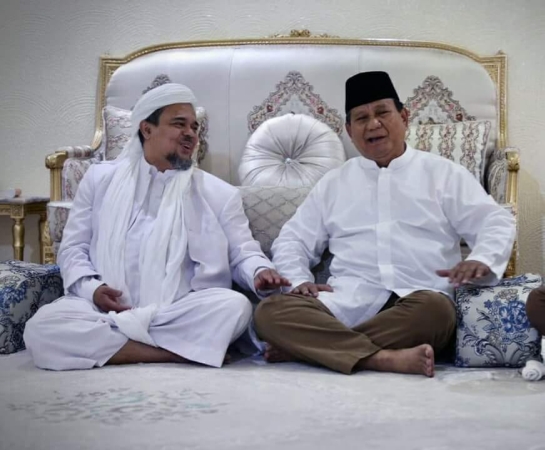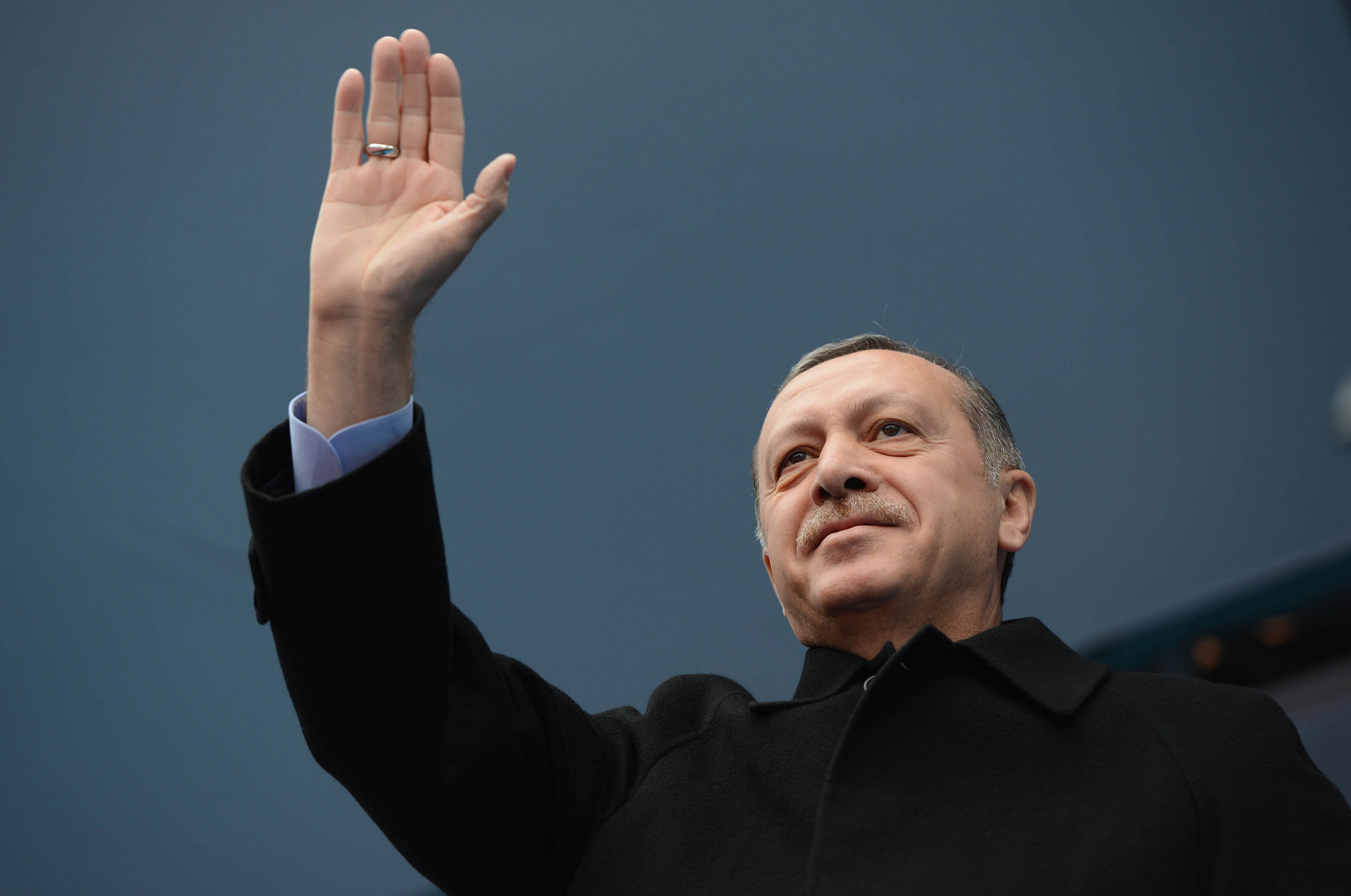Recep Tayyip Erdogan has been elected Turkey’s first executive president — an appointment critics say continues the country’s dangerous slide towards authoritarianism. But thousands of miles away in Indonesia, Erdogan’s victory is being celebrated by hundreds of thousands (at least on social media).
Erdogan has earned an increasing number of supporters in Indonesia over the past few years, coinciding with his gradual rise towards ultimate power. Erdogan’s staunch Islamism certainly plays a factor, but the support he enjoys in Indonesia could be seen as a sign of the country’s overall shift towards conservatism.
Erdogan’s rise
Erdogan, who comes from an Islamist political background, served as Turkey’s prime minister from 2003 to 2014, vacating the position to become president that same year. Following a failed military coup in 2016, Turkey narrowly voted in favor of a new constitution last year, giving increased authority to a new executive president, whose new sweeping powers include the ability to dissolve parliament, issue executive decrees, impose a state emergency, extend his presidential term, as well as abolishing the office of the prime minister, among others.
Though the 64-year-old has repeatedly denied the “dictator” label, it’s hard to see Erdogan as anything but, even if he democratically won re-election yesterday. Under Erdogan’s leadership, Turkey has become the world’s biggest jailer of journalists while the president strengthens his grip on the media, government, and military.
Indonesia’s infatuation
In Indonesia, Erdogan’s rising popularity can be measured in increasingly popular fan pages on social media. A Facebook page named ‘Sultan Erdogan’ has close to 170,000 followers at the time of writing. The page serves as a propaganda machine of sorts for Erdogan in Bahasa Indonesia, with posts — sources unclear — highlighting the Turkish president’s perceived positive achievements, which mostly include nationalistic and protectionist policies.
This post, highlighting the difference between the renowned secularism of Turkey’s first president, Mustafa Kemal Atatürk, who famously banned the hijab from being worn in public and government institutions, compared to Erdogan’s pro-Islam policies, shows why many Muslims in Indonesia see the latter as a hero for the religion as a whole.
https://www.facebook.com/sulthonerdogan/photos/a.754119711389201.1073741829.751516868316152/1231667586967742/?type=3&theater
The Facebook group ‘Sahabat Erdogan’ (Friends of Erdogan) is even more popular, with over 550,000 followers at the time of writing, on top of an Instagram page which has over 60,000 followers. In the lead up of the election, the page compiled dozens of photos showing followers — all of them appearing to be Indonesian Muslims, separated by gender — placed next to a campaign photo of Erdogan with the tagline “Erdogan for President!” Thousands of commenters flooded the posts with their messages of support for the Turkish president.
https://www.facebook.com/sahabaterdogan/posts/1735639393140455
https://www.facebook.com/sahabaterdogan/posts/1737459199625141
On the Instagram page, Sahabat Erdogan has reposted videos of support from Indonesians for Erdogan, ranging from celebrities to this fellow, who, despite his apparent love for the politician, isn’t even aware that Erdogan’s name isn’t pronounced with a hard “g”.
https://www.instagram.com/p/BkaVvvfneTT/?taken-by=sahabaterdogan
Support for Erdogan does represent a monetization opportunity for some opportunistic Indonesians. The Sahabat Erdogan Facebook page, for example, features a shop that sells Erdogan-themed t-shirts for around IDR125,000 (US$8.84) each, turning the Turkish president into both a revered figure and a commercialized political hero a la Che Guevara.
Indonesia’s own Erdogan?
On the politics front, the Islam-based party Prosperous Justice Party (PKS) has publicly congratulated Erdogan on his victory, calling his campaign an “effective strategy”. It wouldn’t be a stretch to assume that they too would like an Erdogan-esque figure leading Indonesia.
PKS is likely going to back Prabowo Subianto in the 2019 election. Prabowo, who lost the the 2014 election to President Joko Widodo, did not campaign on an Islamic platform four years ago, but will likely have to do so next year if he hopes to have a chance against the ever-popular incumbent. His recent visit with radical cleric and Islamic Defenders Front (FPI) leader Rizieq Shihab in Saudi Arabia, who was instrumental in former Jakarta Governor Basuki “Ahok” Tjahaja Purnama’s blasphemy conviction and defeat in the gubernatorial election last year, speaks volumes as to what Prabowo and pals might consider to be an “effective strategy” for next year’s election.

Religion aside, Prabowo’s Gerindra Party has worked hard to sell the narrative that Indonesia needs a visibly strong, stern leader to steer the ship, qualities that Jokowi, a soft-spoken former furniture salesman, arguably lack. Recently, Gerindra’s Vice Chairman Fadli Zon said that Indonesia needs a leader like Russia’s Vladimir Putin, somebody like — you guessed it — Prabowo. Of course, there are parallels between Putin and Erdogan, especially in the sense that both strongmen have employed forceful tactics to silence their opposition and critics to become the de facto dictators of their respective countries.
Are Indonesians longing for a return to the dictatorial rule of Soeharto’s New Order era? Local supporters of Erdogan seem to believe that a dictatorship is a fair trade off for socio-political religious stability, even if it only benefits them — the majority. Next year’s presidential election will be an important test for Indonesia’s pluralism — a hypothetical weakening of which could open up the possibility of an Erdogan-esque figure leading Indonesia in the future.
But is Indonesia going the way of Turkey anytime soon? Pro-pluralists may still be comforted by the fact that Jokowi still leads in practically every poll for 2019. But image is everything in the popularity contest that is Indonesian politics, and if an Erdogan is what the majority demands, then an Erdogan we will get — for better or worse.





Reader Interactions